

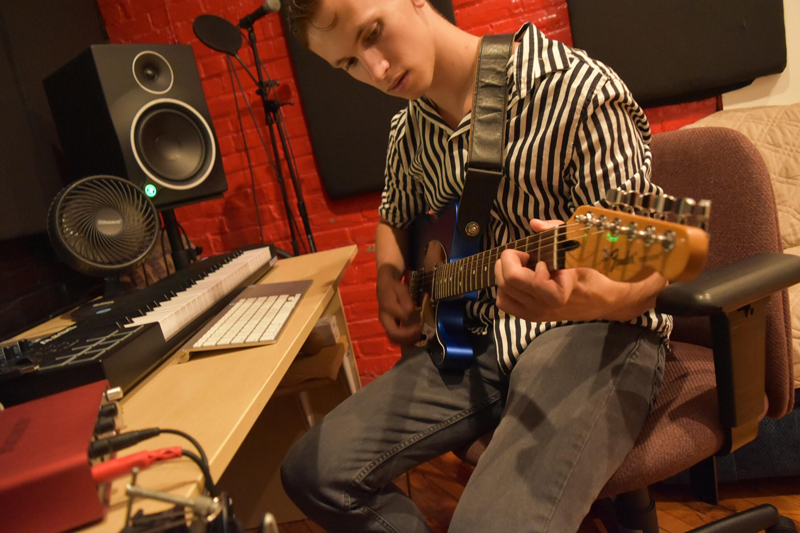
Making music remotely
Photos courtesy of UD Music Production Club April 29, 2020
UD students in quarantine are fostering connection through music
Editor's note: This is an update on a UDaily story about the UD Music Production Club, which was published in April 2020, just as the coronavirus pandemic was settling over America. Sam Goetz, who graduated with honors from UD in 2021 with a degree in mechanical engineering, is scheduled to launch a music software startup called Stemmer on Thursday, Nov. 17, 2022. Stemmer makes amateur rap songs sound professional, and has been funded with $30,000 from UD's Horn Entrepreneurship program.
................
When it launched in the fall of 2019, the Music Production Club at the University of Delaware comprised an unlikely mix. Sure, there were a couple of music majors in the group, but — for the most part — participants represented a variety of departments, from mathematics to Spanish to psychology. Aspiring to be a teacher? A doctor? A candlestick maker? It didn’t matter. As long as you had a song or a beat in your head, you had a community. And, every Monday evening, that community met in the Student Multimedia Design Center of UD’s Morris Library.
Then: the coronavirus (COVID-19) pandemic struck.
For a moment, the club’s 16 participants thought their communal music-making days might be sunk. With campus closed and social distancing directives coming from state and federal authorities, some braced for a return to making art in isolation. But music forges connection even when — and, sometimes, especially when — you can’t physically connect.
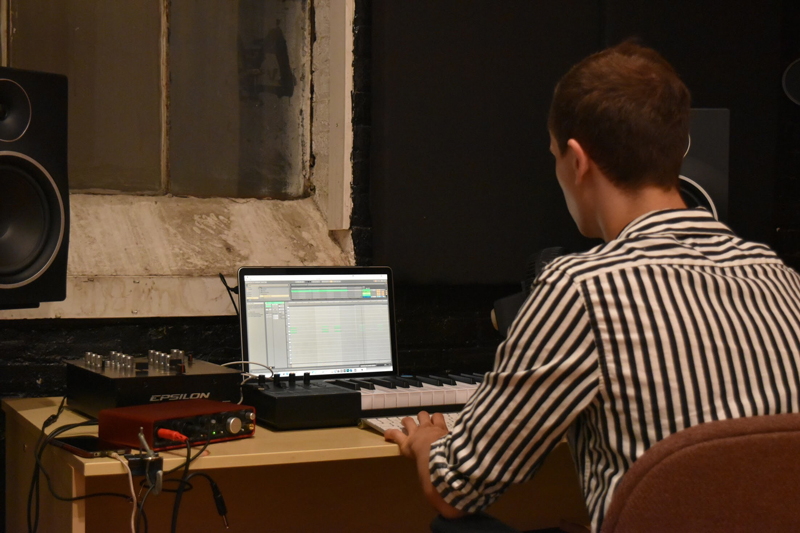
The student musicians, who produce everything from rap to pop to electronic dance music, have transferred their weekly meetings to Zoom, a video conferencing platform. Using DAWs — digital audio workstations for recording, editing, arranging, mixing and mastering music on a computer — they take turns creating a sample, or a piece of a recording. Each member then uses this sample as the foundation for a song or beat created over the course of a week. When the students reconvene, they share their work and offer feedback.
“I guess you could say I’m going a little stir crazy during quarantine,” said Samuel Goetz, sophomore honors mechanical engineering major, from his home in Haddonfield, New Jersey. “But making music helps. It’s almost meditative — you get in the zone. And you do it with peers you wouldn’t otherwise see during social isolation.”
This is the type of experience Goetz said he longed for after graduating high school, when he worked as an audio engineer for a recording studio in Philadelphia and, later, when he launched his own company producing and selling beats to regional rappers.
“I wasn’t creating the music I wanted,” he said. “Instead, I was making what I thought would sell. It was also solitary. Why would I isolate myself when I could be using music to create community?”
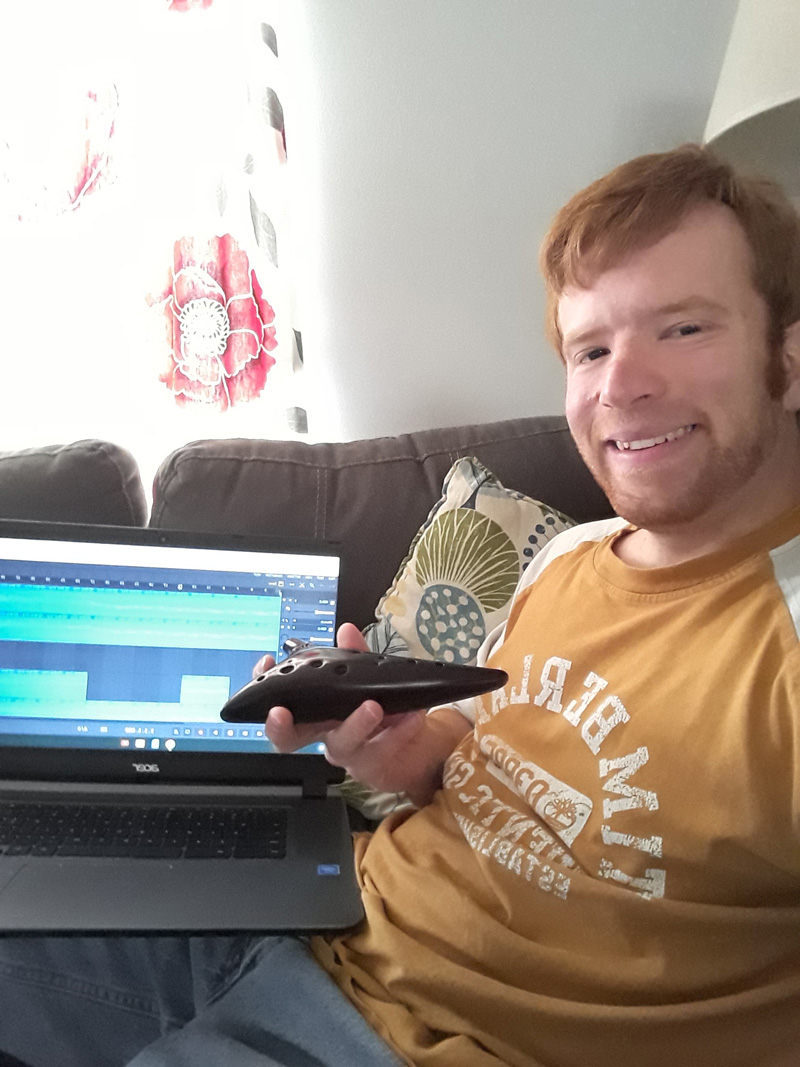
After enrolling in UD, Goetz launched the Music Production Club, now thriving during the midst of a pandemic. One member, Daniel Loughlin, is a human services major considering a career in social work. He makes music both through a DAW and an ocarina, an ancient, bird-shaped wind instrument. His current passion project — “I’ve devoted hundreds of hours to it” — is creating the soundtrack for a friend’s independent, animated film about coping with loss.
Because Loughlin is a person with both high-functioning autism and ADHD, he said, the music has been a type of therapy — something that helps him regain his focus when he is frustrated by school work. It also serves as an escape from an unsettled world.
“Music takes your soul to a different place,” he said. “Even just for a little bit, it gets your mind off of everything, which is especially important during a stressful moment like this. It’s a reminder that there are good things out there, too. It gives us a reprieve.”
Because many of the musicians upload their work to various streaming services, outside listeners have access to this reprieve as well. Putting something beautiful into the world at a time when so many are struggling, Loughlin said, is “definitely part of the motivation.”
Consider Julian Volare, a violinist and first-year business major who recently shared his latest project — a mixed tape of melodic rap — on SoundCloud, Spotify, YouTube and Apple Music. One of the songs, “No Roommate,” is about breaking up with his girlfriend on move-in day at UD.
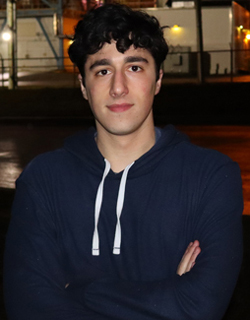
“I was pretty upset about it,” he said from his home in Wilmington, Delaware. “But without that experience, I wouldn’t have this song, and I’m very happy with it. I can’t imagine not having this creative outlet. I’d encourage anyone who is not making art right now — music, painting, ceramics, whatever — to start. Having that expression is so important, especially if you don’t have anyone to talk to.” Being able to engage with outsiders who appreciate your art in online comment sections during a period of social isolation, he added, is a nice bonus.
For those interested in joining the club, the group encourages participation from music enthusiasts of every skill level and from any department on campus. The only requirement is that you have that song or beat in your head… and that you come ready to grow as an artist. All the musicians said they’re continually learning from one another and their own creative processes. One of the takeaways? Patience is paramount. Good things take time. If you want to be happy with your results, you have to put in the work.
It’s a lesson, they said, is applicable to this time of quarantine.
“I really hope everyone is doing what they can to stay positive and healthy,” Loughlin said between ocarina practice sessions. “There may be more we need to endure, and it may not be easy. But — eventually — better days are on the way.”
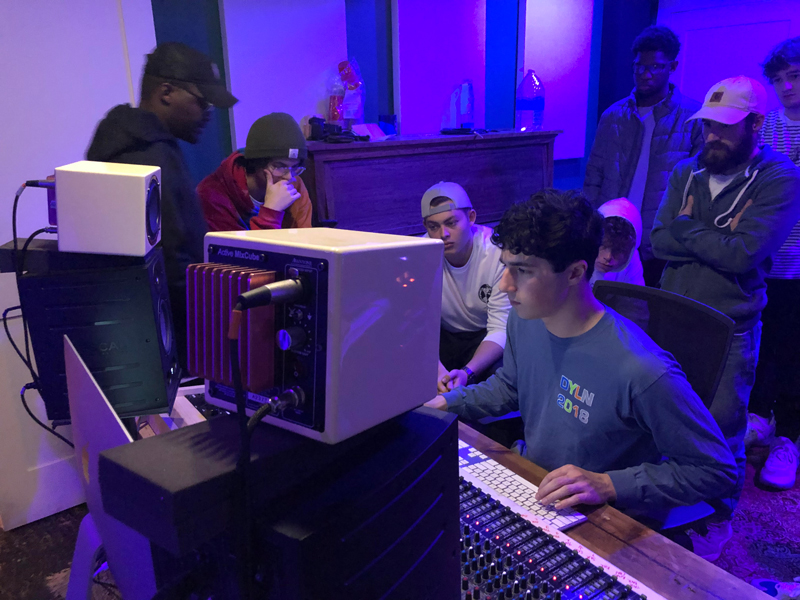
Contact Us
Have a UDaily story idea?
Contact us at ocm@udel.edu
Members of the press
Contact us at 302-831-NEWS or visit the Media Relations website

